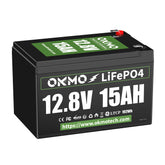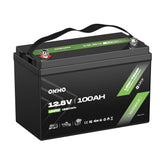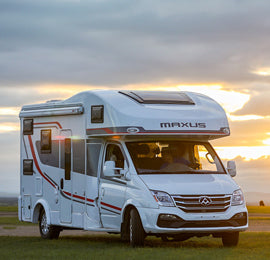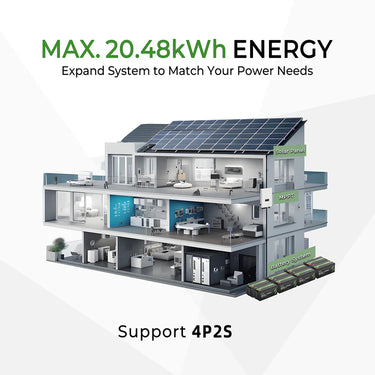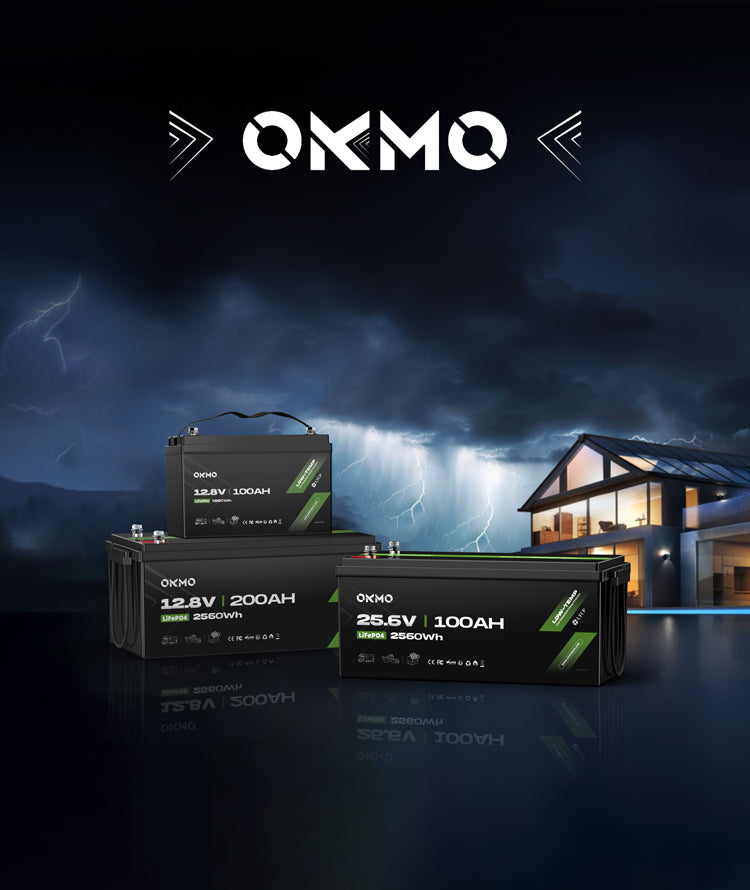Marine Battery vs Car Battery: Focusing on LiFePO4, the Smart Choice
 In the world of batteries, "marine batteries" and "car batteries" may seem similar, but they serve fundamentally different purposes. With the maturation of lithium-ion technology, particularly Lithium Iron Phosphate (LiFePO4) batteries, which boast exceptional safety, ultra-long cycle life, and outstanding performance, they are rapidly becoming the ideal upgrade for both applications. This article delves into the core differences between marine and car batteries, examines them through the lens of mainstream LiFePO4 technology, and recommends top brands for each.
In the world of batteries, "marine batteries" and "car batteries" may seem similar, but they serve fundamentally different purposes. With the maturation of lithium-ion technology, particularly Lithium Iron Phosphate (LiFePO4) batteries, which boast exceptional safety, ultra-long cycle life, and outstanding performance, they are rapidly becoming the ideal upgrade for both applications. This article delves into the core differences between marine and car batteries, examines them through the lens of mainstream LiFePO4 technology, and recommends top brands for each.
Core Mission: Deep Cycling vs Burst Starting Power
-
Marine Battery: The King of Deep Cycling Endurance
-
Core Task: To provide sustained, stable power output for long-running equipment.
-
Typical Loads: Electric trolling motors, onboard audio systems, navigation equipment (GPS/fish finders), bilge pumps, lighting, refrigerators.
-
Key Requirements:
-
Deep Cycling Capability: Ability to withstand repeated deep discharges (DoD up to 80% or higher) and full recharges without significant lifespan degradation.
-
Total Capacity (Ah): The critical factor determining how long equipment can run.
-
Durability & Protection: Must resist harsh vibration, moisture, and salt spray corrosion inherent in marine environments.
-
Long Runtime: Provides consistent power assurance.
-
-
-
Car Battery (Starter Battery): The Burst Power for Starting
-
Core Task: To deliver massive current instantly to crank the engine.
-
Typical Loads: Starter motor, ignition system.
-
Key Requirements:
-
Cold Cranking Amps (CCA): Measures the battery's ability to provide sufficient starting voltage current for 30 seconds at low temperatures (typically 0°F / -18°C). This is the most critical metric for car starter batteries.
-
Instantaneous Power Output: Meets the short-term high-power demand of the starter motor.
-
Charge Acceptance: Must quickly accept recharge from the alternator after engine start.
-
Vibration Resistance: Must withstand engine compartment conditions.
-
Shallow Cycling: Daily use typically involves shallow discharges (mainly during starting) followed by rapid alternator recharge.
-
-
 LiFePO4 Batteries: The Perfect Fit with Disruptive Advantages
LiFePO4 Batteries: The Perfect Fit with Disruptive Advantages
LiFePO4 technology, with its unique strengths, perfectly addresses the pain points of traditional lead-acid batteries (Flooded, AGM, Gel) in both marine and automotive applications:
-
Unmatched Cycle Life: LiFePO4 batteries typically offer 2000-7000+ deep charge/discharge cycles (at 80% DoD), far exceeding the 300-500 cycles of lead-acid batteries. This is revolutionary for marine scenarios requiring frequent deep discharges.
-
High Energy Density: Smaller size and lighter weight (approx. 1/3 of lead-acid) for the same capacity, crucial for reducing boat weight and optimizing engine bay space.
-
Superior Discharge Performance: Stable voltage plateau delivers power close to nominal voltage throughout most of the discharge cycle, ensuring stable equipment operation. Excellent high-rate discharge capability easily meets the high CCA demands of automotive starting.
-
Top-Tier Safety: Excellent thermal stability, strong tolerance to overcharge and over-discharge, low risk of fire or explosion – vital for reliability in mobile environments.
-
Virtually Maintenance-Free: No memory effect, zero maintenance required.
-
Low Self-Discharge Rate: Minimal power loss during storage.
-
Eco-Friendly: Contains no heavy metals like lead or cadmium.
Subtle Differences in Marine vs Automotive LiFePO4 Batteries
While both use the core LiFePO4 chemistry, design priorities differ based on the application:
-
Marine LiFePO4 Battery (Deep Cycle Type):
-
Core Focus: Optimizing cycle life and total capacity (Ah).
-
Design: Cells and BMS (Battery Management System) emphasize durability for deep cycling and optimized charge/discharge strategies for longevity.
-
Protection: Housings typically feature higher Ingress Protection ratings (e.g., IP67) and corrosion resistance for harsh marine environments.
-
Certification: May require specific marine certifications (e.g., ABYC, RINA).
-
-
Automotive Starter LiFePO4 Battery:
-
Core Focus: Optimizing Cold Cranking Amps (CCA).
-
Design: Cells and BMS prioritize instantaneous ultra-high-rate discharge capability to ensure strong cranking power, especially in cold weather. Size and terminal design must perfectly fit the original vehicle battery location.
-
Protection: Needs to meet high-temperature resistance and vibration tolerance requirements of the engine bay (often through robust casing).
-
Compatibility: BMS must ensure seamless compatibility with the vehicle's charging system (alternator).
-
 Crucial Warning: NEVER Mix Applications!
Crucial Warning: NEVER Mix Applications!
-
NEVER use a deep cycle marine battery for automotive starting! While it might start the engine a few times, it's not optimized for sustained instant high-current bursts. Long-term use will significantly shorten its deep cycle lifespan, and its CCA may be insufficient.
-
NEVER use an automotive starter battery as a marine deep cycle battery! Deep discharging will quickly damage the plates in lead-acid starter batteries. For LiFePO4 starter batteries, deep cycling exceeds their design intent (though still better than lead-acid, it's sub-optimal).
Recommended Mainstream LiFePO4 Brands
Choosing reputable brands is key for quality, safety, and support. Here are top LiFePO4 brand recommendations for marine and automotive starting:
Recommended Marine LiFePO4 Deep Cycle Battery Brands
-
Battle Born Batteries:
-
A leader in the North American market, renowned for high quality, reliability, and excellent customer service.
-
Extensive product line, featuring built-in smart BMS with optional heating.
-
Rugged, durable, and well-protected – a top-tier choice for marine deep cycling.
-
-
Renogy (Deep Cycle Series - e.g., Deep Blue / Ray):
-
Offers high-value LiFePO4 solutions.
-
Deep Blue series is designed for marine and RV use, with various capacities and comprehensive built-in BMS features (including low-temp protection).
-
Protection ratings meet marine requirements.
-
-
Dakota Lithium:
-
Known for the "Built for Life" motto and an exceptionally long warranty (11 years).
-
Batteries are extremely rugged, emphasizing impact and vibration resistance.
-
Offers series specifically designed for marine use, known for stable and reliable performance.
-
-
OKMO (formerly OKMOtech):
-
Provides high-quality LiFePO4 batteries at highly competitive prices.
-
Their marine deep cycle series is reliable, features built-in BMS, IP65 rating, and offers excellent value.
-
-
Eco-Worthy:
-
Another value-focused brand offering various marine LiFePO4 battery options.
-
Suitable for budget-conscious users who still demand good performance.
-
 Recommended Automotive Starter LiFePO4 Battery Brands
Recommended Automotive Starter LiFePO4 Battery Brands
-
Dakota Lithium DL+ Start Series:
-
Specifically optimized for starting applications.
-
Delivers very high CCA values (far exceeding same-size lead-acid), providing powerful and reliable starts.
-
Compact design fits most OEM battery locations, backed by the same long warranty.
-
-
Antigravity Batteries:
-
Specializes in high-performance, lightweight starting batteries (including LiFePO4).
-
Their Restart series even includes a built-in backup starting module.
-
Extremely lightweight with superb CCA performance, popular among performance and modified car enthusiasts.
-
-
Shorai LFX:
-
A pioneer in LiFePO4 starter batteries for motorcycles/ATVs, also offers automotive sizes.
-
Famous for ultra-light weight and excellent cranking power.
-
-
Braille Battery:
-
Focuses on high-performance, lightweight batteries (including LiFePO4) for racing and street cars.
-
Offers various CCA ratings and sizes, known for exceptional quality.
-
 Conclusion: LiFePO4 - The Smart Choice for Smooth Sailing and Reliable Starts
Conclusion: LiFePO4 - The Smart Choice for Smooth Sailing and Reliable Starts
The fundamental difference between marine and car batteries lies in deep cycle endurance versus instantaneous cranking power. LiFePO4 batteries, with their ultra-long cycle life, high energy density, superior discharge performance, top-tier safety, and maintenance-free nature, demonstrate overwhelming advantages in both fields, representing the future direction for replacing traditional lead-acid batteries.
-
Choosing a Marine LiFePO4 Battery: Look for deep cycle design, high capacity (Ah), high protection rating (IP67), and strong brand reputation (e.g., Battle Born, Renogy Deep Blue, Dakota Lithium).
-
Choosing an Automotive Starter LiFePO4 Battery: Ensure it is specifically designed for starting, provides sufficiently high CCA (matching or exceeding OEM requirements), and fits perfectly (e.g., Dakota Lithium DL+ Start, Antigravity).
 Investing in high-quality LiFePO4 batteries delivers a more durable, reliable, and lightweight power experience. Their extended lifespan also translates to lower long-term costs and a more eco-friendly choice. Whether conquering the waves or cruising the roads, LiFePO4 technology provides a powerful and dependable energy source.
Investing in high-quality LiFePO4 batteries delivers a more durable, reliable, and lightweight power experience. Their extended lifespan also translates to lower long-term costs and a more eco-friendly choice. Whether conquering the waves or cruising the roads, LiFePO4 technology provides a powerful and dependable energy source.
